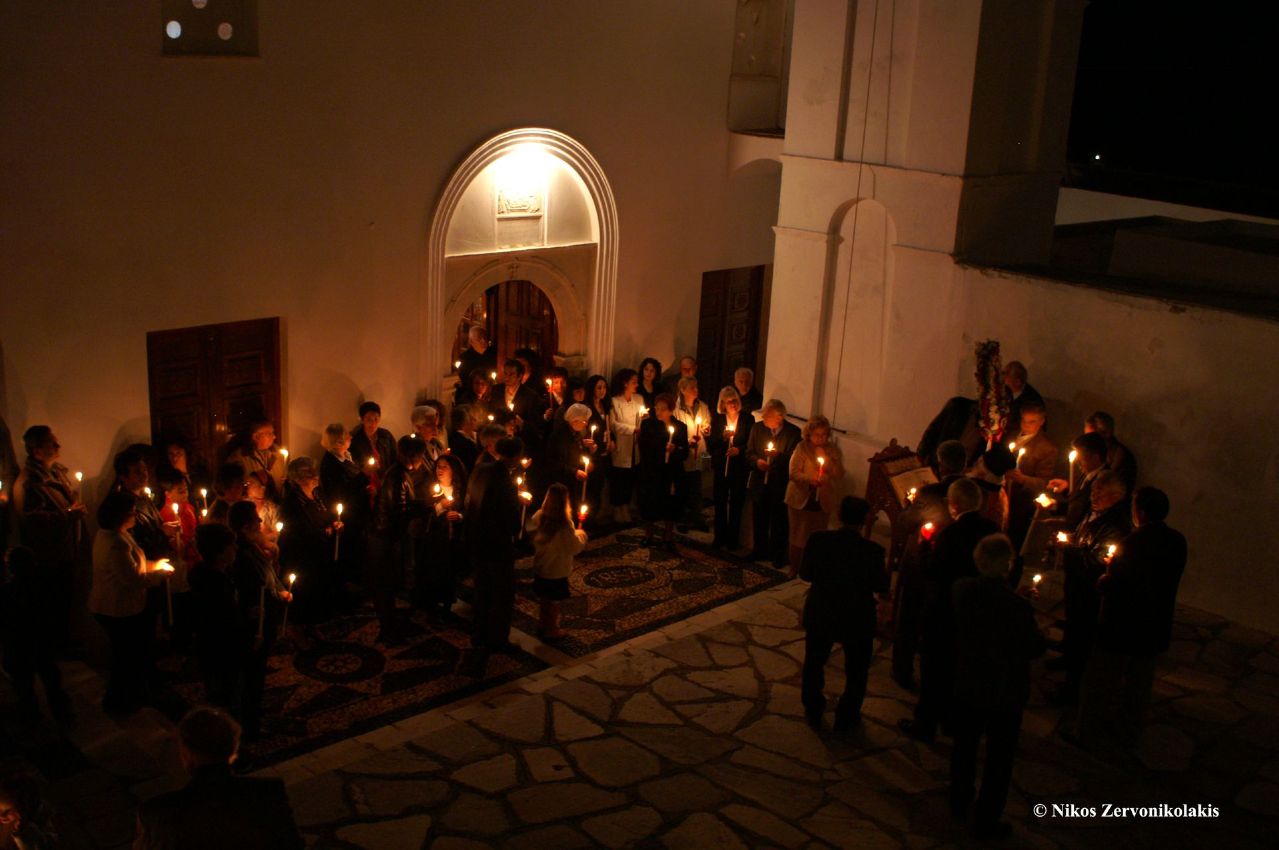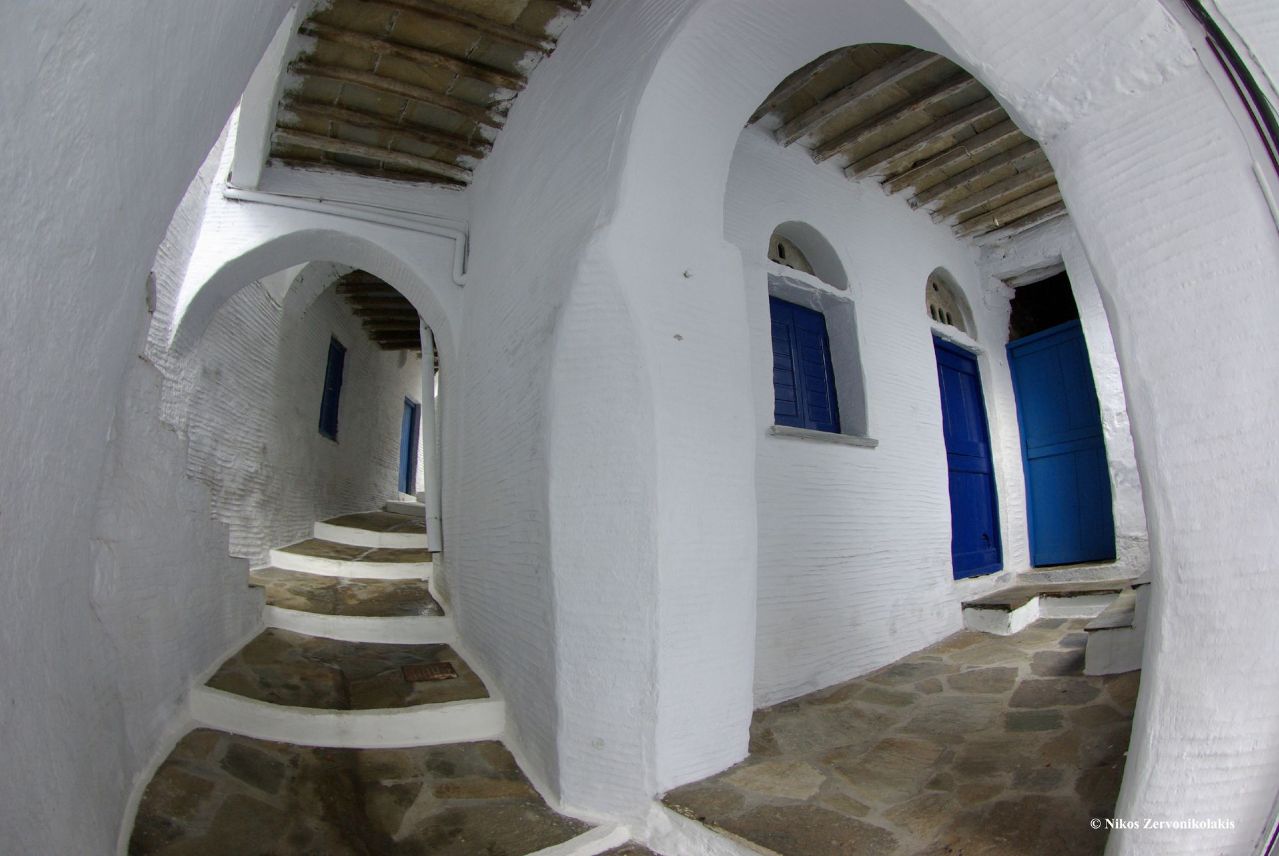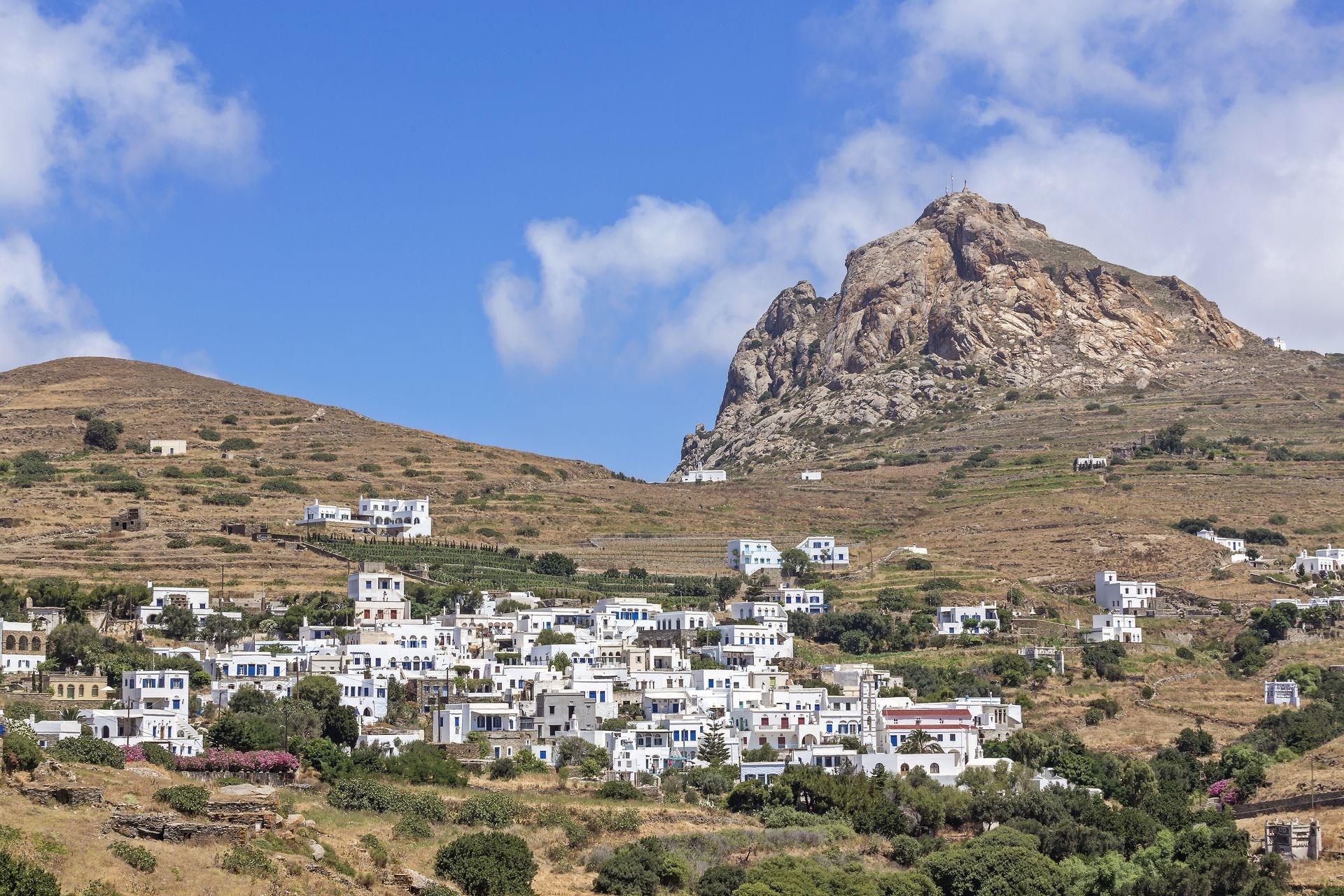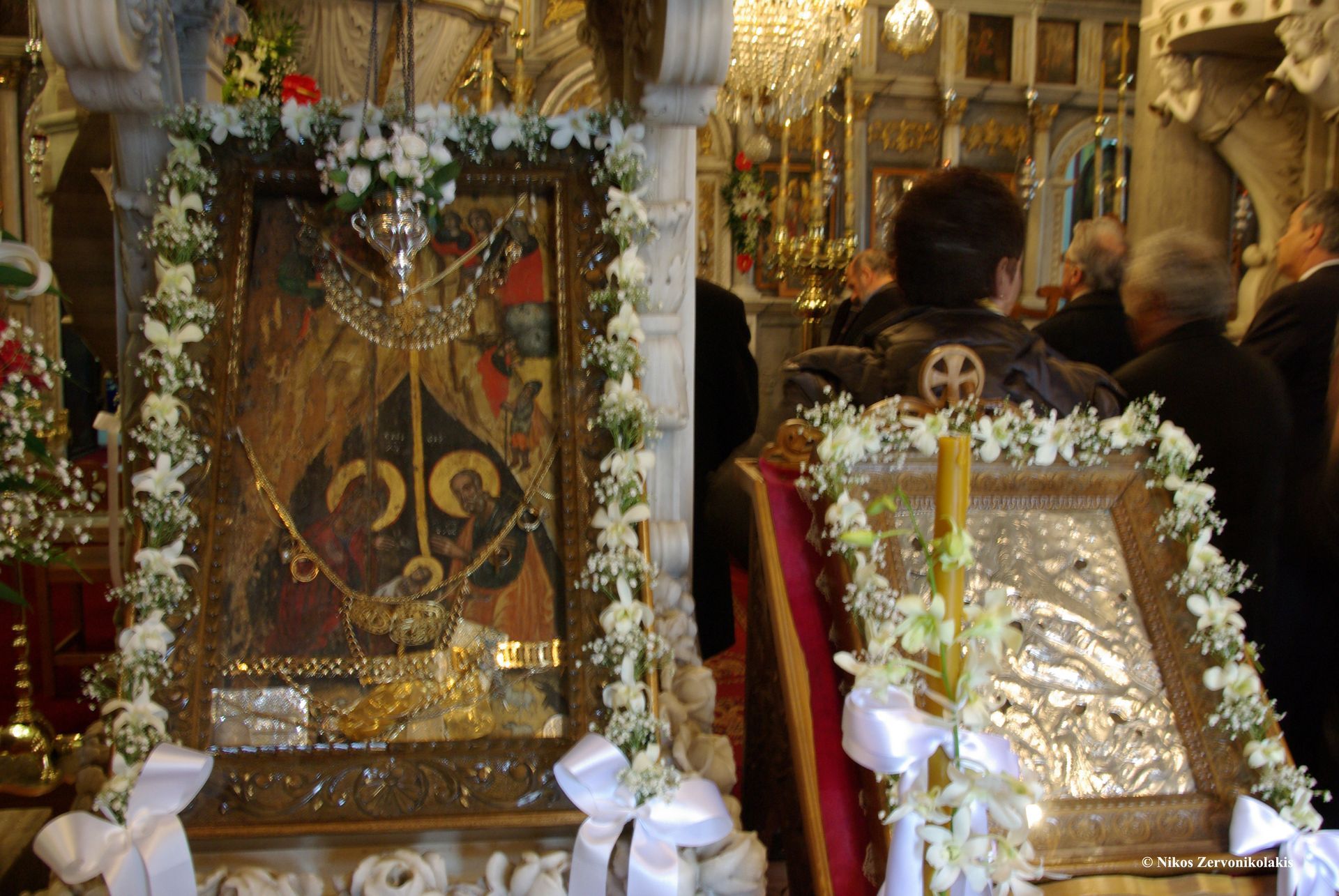Tripotamos, Tinos: A Journey into Authentic Cycladic Village Life
Nestled in the heart of Tinos Island, Tripotamos traditional village is home to Crossroads Inn, our countryside hotel comprised of meticulously restored, listed buildings that form an integral part of this historic settlement and its society.
A Village Steeped in History and Natural Beauty:
Tripotamos boasts a unique position, with the imposing granite Rock of Exombourgo and its medieval castle ruins to the north, and breathtaking views of the Aegean Sea, the Monastery of Aghia Pelagia, and the island of Delos to the south. Archaeological excavations by Nota Kourou, in the wider area, reveal the ancient roots of Tinos Island, dating back to the Prehistoric and Geometric Eras.
Architectural Marvel and Fortified Heritage:
Tripotamos' architecture reflects its history as a fortified village, with entrances facing west, north, and east. It is a maze of stone buildings, which are the work of patient human hands, that cross in vaulted alleys, and covered passages, with the upper floors of the houses (called 'anogia') slightly rising above it all, giving no hint that, in there, lives and breathes an entire village. This invisibility of the village's design provided protection from the pirate raids of past centuries.
The main road, the village's spine, moving from east to west, connects tightly built tiered alleys and vaulted arcades, creating a cohesive and captivating network, devoid of big open spaces. Thus, as a fortified castle village, Tripotamos is one of the few villages in Greece that lacks a central square, with the main gathering place for its inhabitants being the village church.







